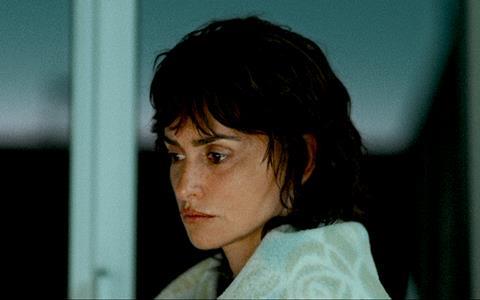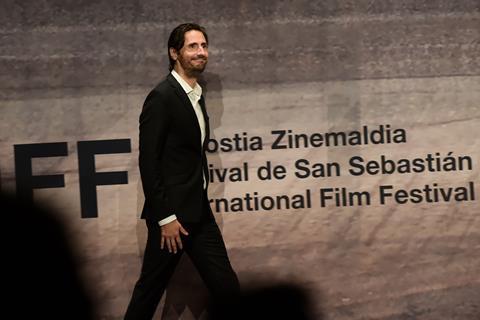
Actor Juan Diego Botto’s first feature as a director is On The Fringe, starring Penélope Cruz, which comes to San Sebastián’s Perlak (Pearls) section fresh from its world premiere at the Venice Film Festival.
The social-realist drama about eviction and economic crisis focuses on three central characters: Rafa (Luis Tosar), a lawyer and activist whose altruistic instincts come at the expense of stability in his own life and family; supermarket worker Azucena (Penelope Cruz), a wife and mother who is a day away from eviction from her home; and Teodora (Adelfa Calvo), an older woman who is trying and failing to connect with the son who blames himself for both of their financial problems.
Botto’s recent credits as an actor include titles such as The Suicide Squad and series including White Lines and They All Lied.

You co-starred with Penélope Cruz in La Celestina, directed by Gerardo Herrero, 26 years ago. How did it feel to work together again?
A joy. She was determined to work on the film, as an actress and as a producer, from the very beginning. Without her we would not be here.
How did you put the film together from a financing point of view?
It involved years of work and knocking on many doors, including those of platforms, but most of them remained closed. They were not interested despite the fact that Penélope Cruz was behind the project from the start. Production company Morena Films with Alvaro Longoria came on board and a green light from the Spanish public TV (Radio Television Española) unlocked the financing.
One would think that with your name and Cruz’s name attached to the project it should have been an easier process?
I guess it was so difficult because when people heard the word “eviction” they were discouraged. The reluctance caught us by surprise, I confess, and the only explanation I can find is our subject matter.
You have made no secret in your career about your social engagement. But was there a particular story that triggered a need to talk about people living on the fringe of society for you as director?
There were many. I remember when I first talked about this project with my partner and later co-writer of the screenplay, Olga Rodríguez. The first thing she told me, being a journalist, was: let’s start by doing in-depth research. That was a long process and it has been one of the best things about making this film: talking with victims of evictions, social workers, lawyers and bank workers. The real stories, all more terrible and dramatic than we see in the film, made it even more pressing to make On The Fringe. We weaved the story together from all that research. I can assure you that if we had told the real stories, they would have seemed implausible. It’s still shocking how one life can be so painful and so tragic for victims of abuse or illness who lose their homes.
How did your extensive experience as a cinema and theatre actor help you as a director?
I guess my work as an actor helped me in understanding the characters as in the case of the lawyer played by Luis Tosar, a good man who tries to help others but is a disaster at handling his own life, or of these women, like Penélope or Adelfa Calvo’s characters, who are always on the front-line, always carrying an extra load of pain and responsibility. In terms of directing, we always had in mind a kind of realistic, documentary-style: a camera that sticks to the characters and watches them in a kind of voyeuristic style. Visually, my main source of inspiration was the work of photojournalists. With the DoP [Arnau Valls] we looked carefully at the work of several photographers.
How does it feel to come back to a festival you know so well with On The Fringe?
Very special, the film is screening at the same theatre where I remember coming for the first time twenty-five years ago with Martin Hache by Adolfo Aristarain. It’s an emotional and symbolic moment for me, particularly with a film where we have invested such a lot of time and effort.
Being able to show the film in festivals like Venice and San Sebastián is key to drawing attention to the film and reaching audiences and different markets, but also to spotlight the topic at hand: people that live on the fringe of society, like the victims of evictions - people who are excluded and feel helpless. The attention we can find here helps particularly in the case of a subject matter such as ours because, despite having stars like Penélope Cruz and Luis Tosar as well as a great cast, this is not a Disney or Marvel production.

























No comments yet